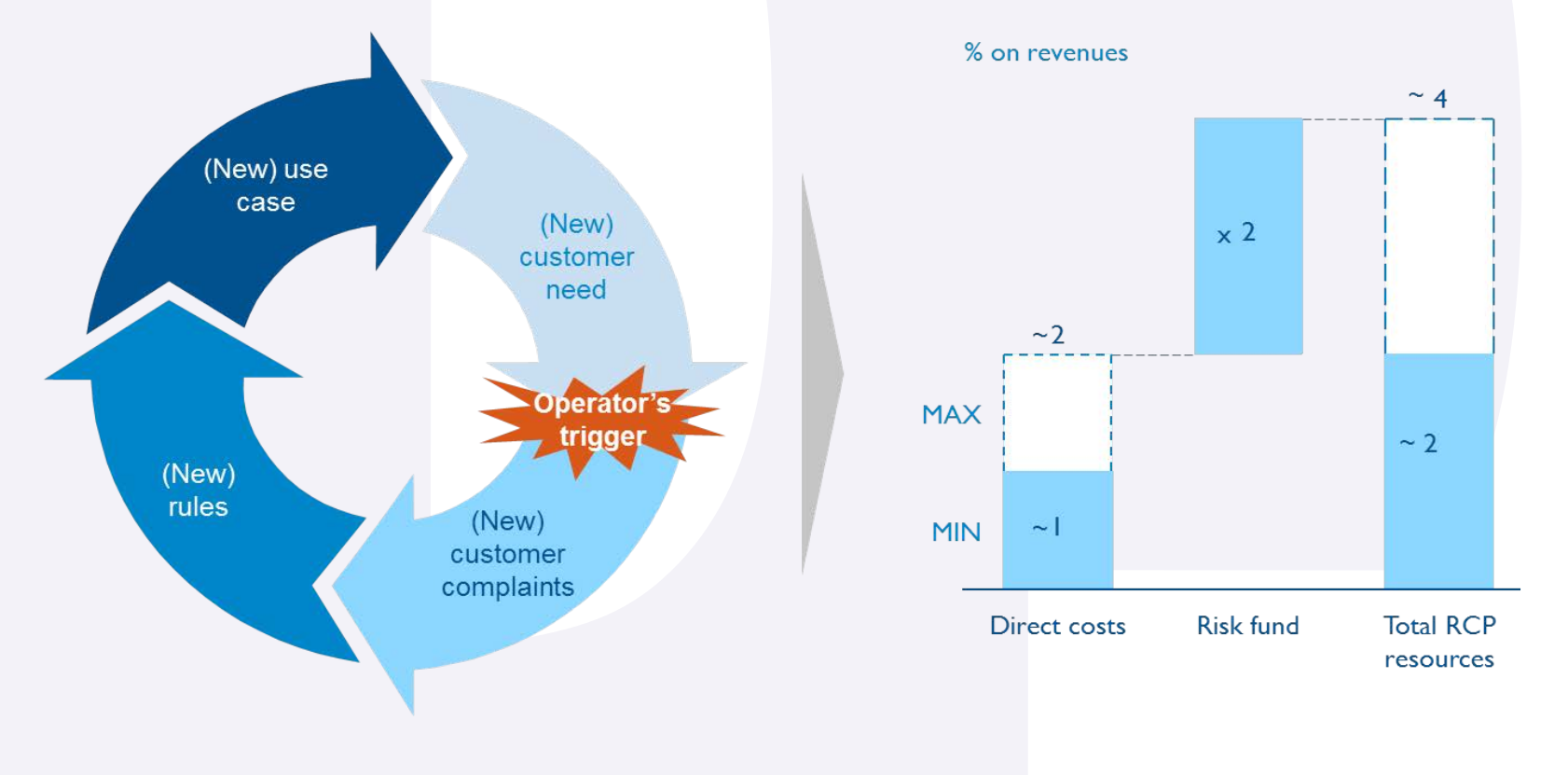
DOWNLOAD
DATE
Contact
Telecom players dedicate significant resources to complying with retail & consumer protection (RCP) regulation, having created complex horizontal processes and tools spanning several departments. Despite this, the complexity of the subject and the continuous flow of new rules often translate into unwise actions (eventually punished by regulatory institutions).
With the support of some of the most important telecom groups, Arthur D. Little has developed a unique framework for a holistic understanding of such regulation. Our analysis revealed that:
Retail and consumer protection is vast: Our Global Framework identifies five common policy objectives, 12 regulatory areas, 36 measures and about 144 rules, which are often the result of an endless cycle: new uses cases generating new consumer needs, eventually leading to new customer complaints.
Dedicated resources are sizable and growing: Telecom operators dedicate up to 2% of their revenues to complying with RCP regulation, and often are forced to reserve similar amounts as risk funds. These resources are frequently allocated as a reaction to, rather than a driver for, a consistent approach to RCP regulation, and managed as a compliance challenge rather than a differentiation lever.
Figure 1: RCP regulation cycle & costs

Complying with RCP regulation is a critical organizational challenge: Complying with RCP regulation implies overseeing all phases of the customer’s journey. Consequently, all functional departments within telecom operators’ organizations are involved, with knowledge/resources often dispersed across them, and in some cases, without a comprehensive understanding of the multiple activity streams.
There is space for risk and cost mitigation: A strategic approach linking consumer protection to consumer satisfaction not only can reduce regulatory cost, but mostly should improve competitive positioning. Telecom operators can seek better use of resources, and mitigate related risks, by i) structuring local knowledge, ii) comparing local regulatory situations and commercial practices with common triggers and best practices, as captured by our Global Framework, and iii) fostering industry collaboration as a means to reduce regulatory impact.




